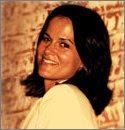From what I can tell after reading a lot about start-up web pubs in the past week, there are three primary business models to consider for web publications - a subscription model, variations of a nonprofit model and an advertising model.
While subscriptions are the ideal for many publishers, we're definitely not there yet. As I look into a rosy future, I see a marketplace where web content has value. Let's hope that news isn't a commodity just yet and that there's still hope for this scenario. Perhaps the bigger brands (eg WSJ and NYT) can step into the subscription waters first (note that WSJ had this model 8 years ago) to create a new online marketplace. Yet, Jonathon Landman, Deputy Managing Editor at The New York Times, told alumni of Columbia Journalism School this past Saturday, “imposing a pay wall could be risky without being that bold,” referring to the expected loss in ad revenue that could occur if subscription fees are imposed. So, advertising isn't cutting it, but will subscription fees make up the difference or create a net loss?
There's also a lot of talk about a nonprofit model for revenue-depleted papers. The thinking is that news organizations will give up on profit altogether, their purpose being solely to deliver free, accessible news. A philanthropists' vision and generosity is how ProPublica.org came to be, http://www.propublica.org/. The site is dedicated to “saving” investigative journalism, a style of reporting that has been cut in many major news organizations due to the associated cost burden. Herb and Marion Sandler have put up $10 Million for Paul Steiger, former managing editor of The Wall Street Journal, to produce ProPublica.com. The site’s stories which focus on abuse of power, have quickly been adopted and are appearing in 60 Minutes, The New York Times, L.A. Times, Politico.com and many other reputable forums.
On the other end of the NP spectrum is DavidsonNews.com, a web site that has taken the public radio approach to subscriptions, making appeals on the website, through email and through direct requests to readers, business owners and local leaders. For Publisher David Boraks, the appeals are working. “At a time when our town is growing and our sense of community is threatened, these people understand how a local news site can provide a shared experience that can hold us together, “ said Boraks. Nearly 250 residents have contributed an average of $60 each though Boraks knows that the number needs to grow substantially if he’s ever going to receive a paycheck.
Vivian Schiller became CEO of NPR just six months ago after exiting as VP and General Manger of NewYorkTimes.com and believes that the nonprofit model won’t work for many media companies. Schiller cites a list of reasons including the difficulty of raising money in a down economy, the rarity of finding an endowment big enough to cover the needs of an news organization and the conflict of interest that occurs when any donations are mixed with a for-profit model. http://www.newsweek.com/id/208703/.
The earliest and most common way of supporting online ventures is advertising. Though online revenues haven’t replaced dollars lost from classified and retail ads at major newspapers and magazines, the overall trend has been and will continue to be for marketers to shift money online. Mansha Daswani wrote about the migration in Worldscreen.com saying, "Advertisers are following consumers to new platforms; a recent Forrester study indicates that 63 percent of global CMOs expect to increase their interactive/online marketing spend while 65 percent expect to decrease traditional advertising." Online will continue to offer tremendous targeting opportunities if news sites can provide advertisers with an active community and data about those visitors that is relevant to their campaigns.
So there are possibilities; avenues to pursue. What media companies must deeply consider is the type of news environment each scenario will produce - it it what readers want, what they're are asking for? Media companies are playing catching up to consumers. We should have learned our lesson - a customer's perspective is all that matters. Let's keep that in mind as we go forward.
